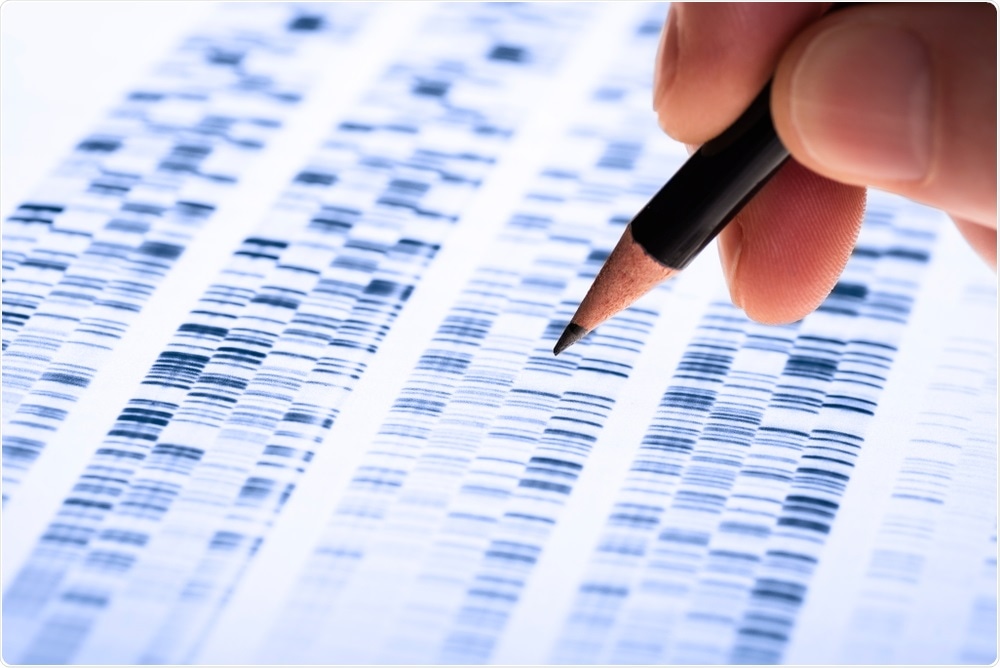Genetic genealogy has grown in popularity in recent years, due to direct-to-consumer (DTC) genetic testing and relative-finder services provided by some DTC genetic testing companies.

Image Credit: gopixa/Shutterstock.com
Scientists observed the results of a survey that asked people who had engaged in these services what influence the discovery of previously unrecognized relatives had on their lives. The study was published on February 24th, 2022, in the American Journal of Human Genetics.
Recognizing a genetic relative emerged to be somewhat common, according to one of the most important findings. Furthermore, those discoveries were generally perceived as neutral or positive, and they did not appear to have a significant impact on the lives of the participants.
However, some participants discovered information that could be considered important and destabilizing, such as the fact that their biological parent was not who they thought they were. These individuals were particularly susceptible to negative results.
Everyone on our team is involved in studying the ethical, legal, and social implications of DTC genetic testing, and we’ve been paying attention to stories in the media about individuals who’ve made surprising family discoveries from these tests and relative-matching services. We wanted to understand if these and other kinds of discoveries are common, how they’re experienced by those making the discoveries, and what people are doing as a result.”
Christi Guerrini, Study Lead Author, Center for Medical Ethics and Health Policy, Baylor College of Medicine
More than 26,000 people answered the poll, which was emailed to nearly one million DTC genetic testing clients and genetic genealogy database users. The total number of completed or nearly finished surveys in the final sample for analysis was 23,196.
Survey participants said they agreed to engage in this type of testing for a variety of reasons, including learning more about their family or building family trees, searching for a biological parent, child, or other relatives, or investigating a presumption that they were not genetically related to family members.
It seems that many—perhaps most—are just curious about their families and interested in building out their family trees, but it’s clear that quite a lot of participants are looking for someone or hoping to confirm something in particular.”
Christi Guerrini, Study Lead Author, Center for Medical Ethics and Health Policy, Baylor College of Medicine
“It might be that they’re adopted and looking for a biological parent, or that they’ve always felt out of place in their family and want to see if there’s something to that feeling. Or they might be looking for information about a branch of their family tree that’s unknown to them, or to confirm a family story that’s been passed down over the years,” Guerrini says.
The majority of responders (82%) said they have discovered to identify at least one genetic cousin. 10% of this group recognized a biological grandparent, 10% identified a full or half-sibling, and 7% identified a biological father. The poll inquired as to whether the participant had opted to contact any of their newly discovered relatives and, if so, why. It also inquired about any changes in their lives as a result of their discoveries, such as changes in health-related habits.
The significant proportion of persons who recognized an unknown genetic connection was not surprising, according to Guerrini, because many of those relatives could be quite distant. However, she admits that the large number of participants who discovered near relatives could be distorted by the type of people who chose to participate in relative matching in the first place. “Unfortunately, we can’t answer that question with our data, but I’m very interested in trying to do so in future research,” Guerrini says.
She goes on to say that while many people seem to find these experiences intriguing and entertaining, it is evident that some people who use these services have had unpleasant experiences.
In future research, we’d like to better understand those outcomes and what resources could be helpful in managing them.”
Christi Guerrini, Study Lead Author, Center for Medical Ethics and Health Policy, Baylor College of Medicine
Source:
Journal reference:
Guerrini, C. J., et al. (2022) Family secrets: Experiences and outcomes of participating in direct-to-consumer genetic relative-finder services. American Journal of Human Genetics. doi.org/10.1016/j.ajhg.2022.01.013.